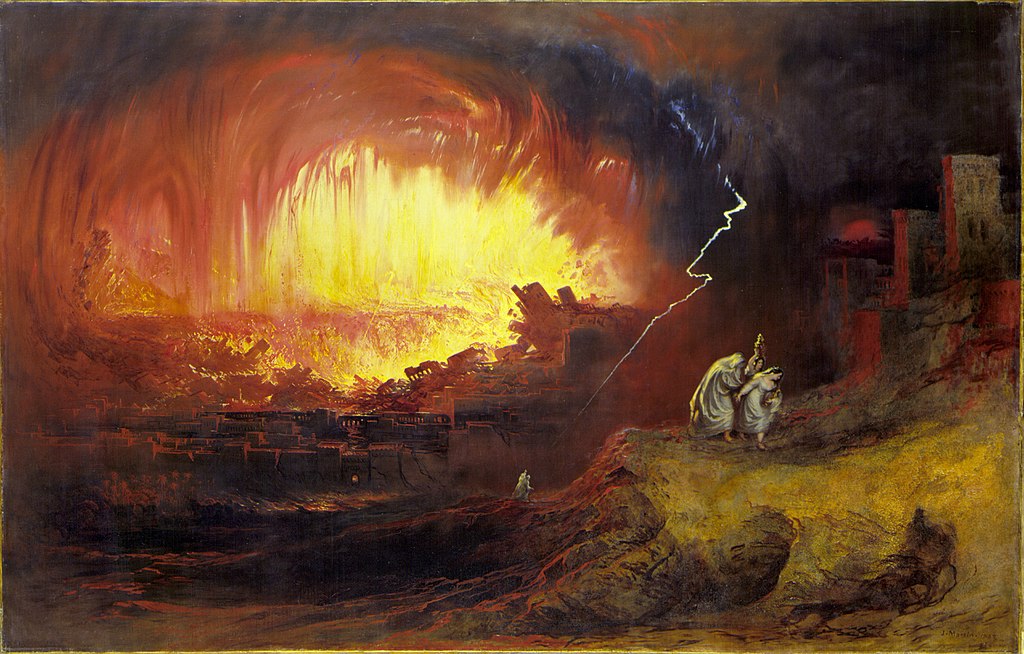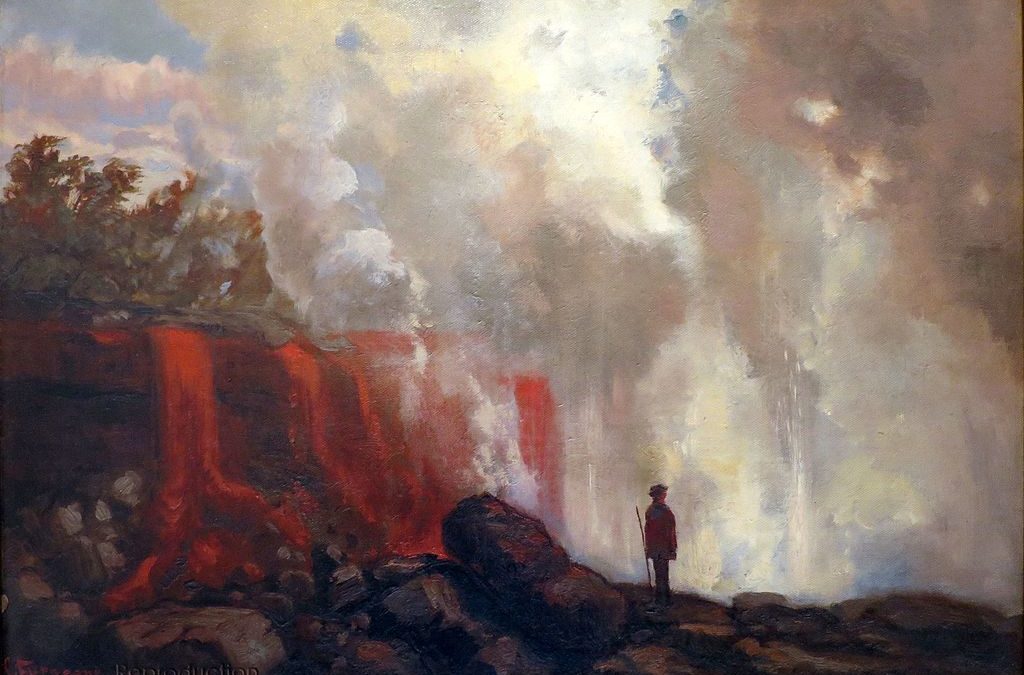How to Fortify the Mind in Times of Crisis
The following is a transcript of the video found below..
“Maturity is the capacity to endure uncertainty.”
~John Finley
To trigger a nervous breakdown in someone you could apply the following steps: Force your victim into an atomized existence, forbid them from participating in the activities that imbue their life with joy, rid them of their job, destroy their daily routines, and tell them not to leave the confines of their home. To add icing to the cake of your diabolical plan you could then tell your victim that society stands on the precipice of an economic collapse. Sadly, this is not fiction, but reality for many people across globe and so in this video we are going to explore how to remain psychologically stable in the midst of a crisis.
A crisis whether it plays out at the level of an entire society, or whether it is more localized to just a single family or a single person, affects the psyche in similar ways. When a crisis leads to rapid and extensive change in the patterns of our life it is disorienting. But if such change is accompanied by uncertainty as to when, or even if, things will return to normal, the disorientation can be so extreme as to threaten our sense of self. For our identity is built on the patterns of our life. Be it our habits, our social roles, our job, our hobbies or our interpersonal relationships, all these things contribute to creation of our selfhood and as the psychologist Michael Mahoney explains:
“It is not easy to maintain a coherent sense of identity, self-worth, or competence in the face of multiple and chronic challenges to old patterns.”
~ Michael Mahoney, Human Change Processes
Without a coherent sense of a self, without the order that produces our identity, the world around us will also become more chaotic and feel less amenable to our wants and needs, or as Jean Piaget explains: “We organize our worlds by first organizing ourselves.” If the shocks to the patterns of our life are serious enough, and if we cannot find a way to absorb them, we become susceptible to a psychological breakdown due to the intense emotionality that arises in the face of a disintegrating self:
“When novel experiences greatly exceed the individual’s capacities to balance, feelings of being overwhelmed are common. Episodic or chronic disorder and “breakdown” may result.”
~ Michael Mahoney, Constructive Psychotherapy
During a societal-wide crisis a population will tend to fear most the threats that precipitated the crisis, but depending on the nature of these threats, it is this threat to our sense of self that may prove most dangerous. Fortunately, with some knowledge of the process that leads to a breakdown we can devise some steps to fortify our psyche.

What first must be recognized, and as counterintuitive as it may seem, is that a breakdown is not a descent into a more disordered state, but is a re-establishment of order at a maladaptive level. The extremes of a psychological breakdown tend toward two forms – severe depression or psychosis. Severe depression rids one of the disordered state that precipitated the breakdown by replacing it with an ordered state of utter despair and hopelessness in which the individual is convinced that things will not get better and so withdraws from life. The intense emotionality, usually in the form of extreme anxiety, that precedes a breakdown into severe depression is replaced by apathy and a psychological deadness to the world.
At the other extreme is the psychotic break. The process of a psychotic break tends to unfold as follows: events of one’s life, be it an acute crisis or more chronic problems that pile up over time, utterly destroy any semblance of a healthy sense of self. When this occurs the individual will enter the panic phase of the process. The disintegrating self and the disorientation this creates bring to the fore emotions of such an intensity that the individual becomes incapable of proper interaction with their environment. Eventually the panic becomes so overwhelming that the psyche re-imposes order through what is called the stage of the psychotic-insight.
To better understand this process we can turn to Silvano Arieti who devoted his life to both treating and studying schizophrenia. In his book Interpretation of Schizophrenia Arieti explains that the psychotic-insight occurs when the panic stricken individual:
“…“succeeds in “putting things together.” By devising a pathological way of seeing reality, he is able to explain his abnormal experiences. The phenomenon is called “insight” because the patient finally sees meaning and relations in his experiences, but the insight is psychotic because it is founded on mental processes that occur only in a state of psychosis”
~ Silvano Arieti, Intepretation of Schizophrenia
Or as Arieti further explains:
“The psychotic transformation will enable him to experience himself and the environment in strange, unique ways, often not susceptible to consensual validation.”
~Silvano Arieti, Intepretation of Schizophrenia
As strange as it may seem the state of psychosis is preferable to the panic phase that preceded it which is why Arieiti defines psychosis as
“an abnormal way of dealing with an [unbearable] situation.”
~ Silvano Arieti, Intepretation of Schizophrenia

If we are most susceptible to a breakdown when stricken by the intense emotions that accompany a way of life under siege, then the first step to ward of a psychological breakdown, is to heed the advice of Henry David Thoreau and “When in doubt, slow down.” If we feel that our emotions are reaching a fever pitch, or spinning us around in circles of dread and despair, we need to somehow interrupt the process before reaching the state of acute panic. The worst way to go about this is to try reason or argue with the emotions, while the best way to deal with this situation is to use some form of activity to relax and to re-centre us. Many people find mindful meditation works well for this purpose, but this is but one of countless activities we can use. Carl Jung, who endured a personal crisis so intense that he flirted with psychosis would draw and paint mandalas to calm his racing mind. Others may find reprieve in weight-lifting, walking, some form of craft or hobby, or a conversation with a calming friend. What is essential is that we have in our arsenal some activities that we can use to re-centre us when our emotions are knocking us too far off kilter. If we really feel overwhelmed one of the best tactics is what Nietzsche called “Russian fatalism”, which is not to do anything at all but just to let go and relax as completely as possible:
“No longer to accept anything at all, no longer to take anything, no longer to absorb anything—to cease reacting altogether. This fatalism…can preserve life under the most perilous conditions by reducing the metabolism, slowing it down, as a kind of will to hibernate.”
~ Nietzsche, Ecce Homo
Or as William James wrote:
“The transition from tenseness, self-responsibility, and worry, to equanimity, receptivity, and peace, is the most wonderful of all the shiftings of inner equilibrium, those changes of the personal centre of energy, which I have analyzed so often; and the chief wonder of it is that it so often comes about, not by doing, but by simply relaxing and throwing the burden down.”
~ William James, The Varieties of Religious Experience
But there are also steps we can take that will inoculate us from descending into the pits of despair that make us susceptible to a breakdown in the first place, and one such step is to turn off the fear porn. In the midst of a crisis, it is extremely difficult to separate fact from fiction and so allowing our minds to be absorbed and overwhelmed by the catastrophizing of the media will not contribute to our sanity. Furthermore, given the notoriously poor record of the mainstream media and the repeated episodes whereby they have been caught in their own lies and manipulations, it is foolish to place our trust in them anyway, for as the bible puts it:
“Like a dog that returns to his vomit is a fool that repeats his folly.”
~ Book of Proverbs

After turning our eyes away from the fear narratives of the media the next thing we need to do to is to re-establish some semblance of order to our life. For when a crisis severely disrupts our patterns and for an extended period of time, our selfhood is at risk the more passive we become. Instead of filling our days drifting from one mindless distraction to another we should devote our time to more rewarding activities. We can create things, learn things, build things, fix things, we can focus on developing new habits or ridding ourselves of destructive ones, we just need to fill the void engendered by the crisis with activities that give our days some sort of structure, meaning, and feeling of accomplishment. Doing this may be the difference between descending into the disoriented state of a disintegrating self and remaining stable throughout the duration of the crisis.
While there are an endless variety of activities that can be used to re-establish some sort of order to our life, there is one project that may be particularly useful at this time and this project builds on the mantra of many a politician which is never to let a good crisis go to waste. For while a crisis can make us more prone to a psychological breakdown, such times are also ripe for achieving what is called a psychological breakthrough. The breakthrough is the mirror opposite of the breakdown as our sense of self does not lose touch with reality as in psychosis, nor does it descend into utter apathy and despair as in depression, but instead one’s sense of self is re-ordered around values and patterns of life that are more resilient and functionally adaptive. In times of great disorder silver linings can still be found and in the next video we will explore how for the bold few a time of crisis can be turned into a great opportunity:
“What a caterpillar calls the end of the world,” wrote Richard Bach “the master calls a butterfly.”
~Richard Bach
Academy of Ideas Membership
Become a member and gain access to exclusive member videos.
You can also support ACADAMY OF IDEAS through:
Come Follow Us on Twitter – Come Like Us on Facebook
Check us out on Instagram – And Sign Up for our Newsletter



 by academyofideas.com
by academyofideas.com









